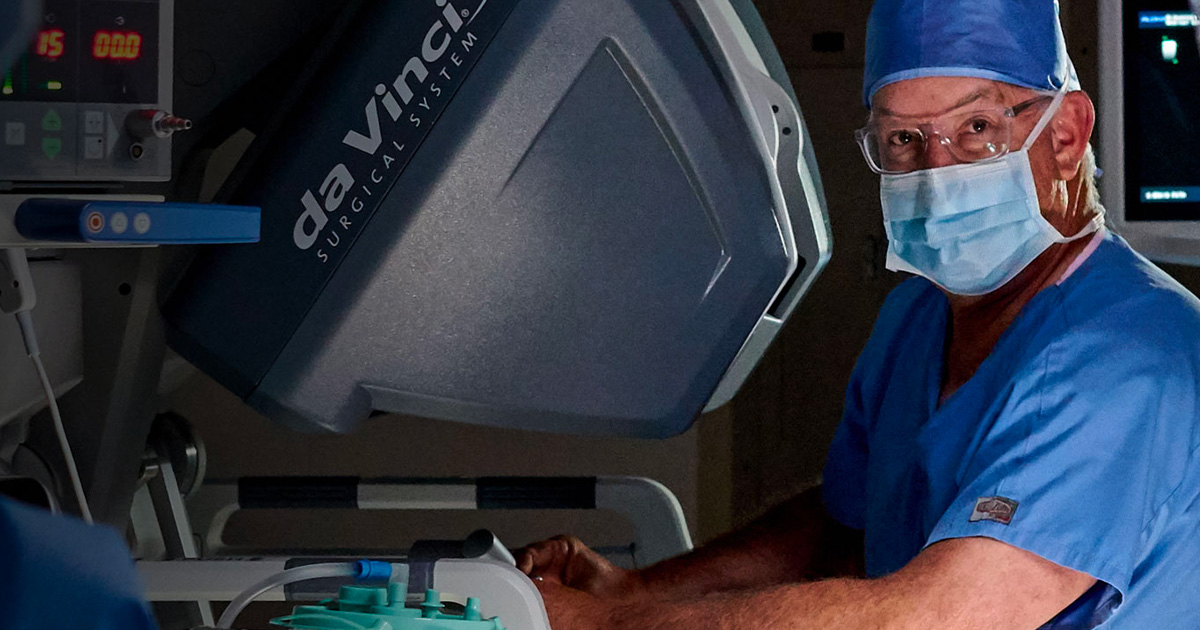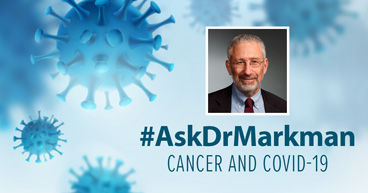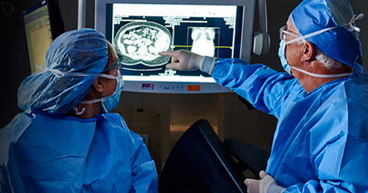
Since the COVID-19 outbreak began spreading to the United States, cancer patients and their care teams have been faced with difficult choices about how to proceed with treatments and diagnostic and screening procedures.
Guidelines set by the federal government in March required some hospitals to postpone procedures deemed to be elective and non-essential, to allow hospitals and medical staffs to focus on COVID-19 patients and other emergencies. For cancer centers like ours, the guidelines meant we were allowed to remain open, continuing to provide treatments that are critical for our patients—and other patients who couldn’t access care at their local hospitals. But the rules also meant we had to postpone or reschedule some cancer screenings and other procedures that the government did not deem “essential.”
For some cancer patients, those guidelines, and other factors brought on by the pandemic, translated into delayed procedures and uncertainty about the direction of their care. In a new survey by the American Cancer Society Cancer Action Network (ACS CAN), 51 percent of cancer patients surveyed said their cancer care was delayed or affected on some level by the pandemic.
That’s why we are welcoming new guidelines issued by the U.S. Center for Medicare and Medicaid Services (CMS) that direct hospitals in some regions to ease some restrictions, allowing cancer patients and others access to non-emergency, non-COVID-19 procedures and care that may have been put off. These new CMS guidelines are intended to work in conjunction with specific steps outlined by the White House to allow a slow and phased-in reopening of specific businesses in certain regions. These steps, called gating criteria, require that a region show a gradual decrease in the numbers of new cases and residents with symptoms, positive tests or documented cases of COVID-19.
We welcome the CMS guidelines because they will allow our patients to get the care they need, when and where they need it, and because they are designed to protect the safety of patients, doctors and all hospital staff. According to the ACS CAN survey, of the 51 percent of patients who said their cancer care was affected by the pandemic, many experienced delays in surgeries, in-person doctor visits, imaging procedures to diagnose possible cancer growth or recurrence or supportive care services, such as physical therapy. Some patients in active treatments said their appointments were delayed and they don’t know when they would be rescheduled.
The new CMS guidelines direct hospitals to continue to consider the clinical need of all procedures, surgical or otherwise, and perform preventative services only when “highly necessary.” They also encourage the use and expansion of telehealth services when appropriate, services that we have actively expanded since the onset of the COVID-19 outbreak.
According to the new CMS protocols, hospitals also should:
- Establish non-COVID care (NCC) zones in which patients and staff would be routinely screened, including temperature checks
- Make sure there’s enough personal protective equipment (PPE) available for all hospital staff and that steps are taken to conserve PPE, if possible, with health care providers and staff wearing surgical masks at all times and patients wearing cloth masks if they don’t have surgical masks
- Enact and enforce social distancing guidelines by reducing patient capacity, reducing waiting rooms times, spacing chairs at least six feet apart and limiting and screening visitors
- Routinely screen staff for COVID-19 symptoms and quarantine those with positive tests or symptoms
- Establish procedures, following U.S. Centers for Disease Control and Prevention (CDC) guidelines, for thoroughly cleaning and disinfecting public spaces, patient rooms and equipment
- Ensure adequate supplies of equipment, medication and supplies
These CMS protocols are not only designed to help prevent the spread of the virus in the hospital, but to position hospital staff to be better prepared if their region experiences a second wave of COVID-19 cases.
These new procedures are in lock step with safety protocols our hospitals had already been taking to help protect the safety of our patients and staff, including screening procedures for all patients and visitors, employing additional food-safety practices, training our staff as new developments occur and following CDC guidelines for patients who need to travel. With these new CMS guidelines in place, together with steps already being taken, and the dedication of our staffs, we are able to continue giving our patients the cancer care they need and deserve.
If you are a cancer survivor or in active treatment and are concerned about how the COVID-19 situation may impact you or your care, please contact your care team.



